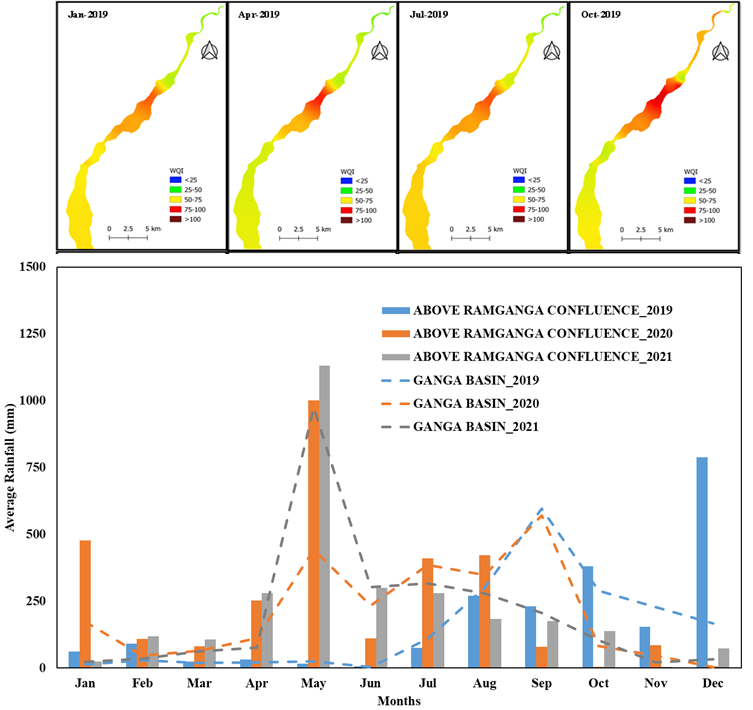Impact of COVID-19 Nationwide Lockdowns and Unlock Phases in India on River Water Quality of Upper Part of the Ganga River COVID-19 and water quality
Main Article Content
Abstract
The river water quality index (RWQI) of the upper Ganga canal has been computed to assess the effect of lockdown and unlock phases lead down by COVID-19 in India. Geospatial distribution of RWQI from January 2019 to December 2021 in the study area revealed significant impacts of lockdown on water quality. However, unlock phases (post lockdown) have deteriorated water quality since August 2020 and reached to actual conditions of the river by August 2021. To evaluate the lockdown as a management strategy to clean the river, other factors were reviewed including rainfall data, migration, and other activities. The results revealed that all the monitoring stations have improved water quality index ranging from 3 to 45 between March to June 2020. The River Ganga at Haridwar showed a two-fold improvement in the water quality index making it the highest positive impact of the lockdown, and at Rishikesh, the water quality index showed the least changes. The average decrease in RWQI has been observed to be 13 units in the year 2020 as compared to 2019 between March to June. In October 2020, RWQI has been observed to be higher as compared to the years 2019 and 2021. This is possibly due to a shift in rainfall patterns and other factors such as evapotranspiration, precipitation, and atmospheric temperature involved in river water quality control. Up to 60% reduction in average total coliforms and fecal coliforms has been observed due to the nationwide lockdown and a shift in human behavior towards cleaner and sustainable approaches.
Article Details

This work is licensed under a Creative Commons Attribution-NonCommercial 4.0 International License.
Published articles are under the copyright of the Applied Environmental Research effective when the article is accepted for publication thus granting Applied Environmental Research all rights for the work so that both parties may be protected from the consequences of unauthorized use. Partially or totally publication of an article elsewhere is possible only after the consent from the editors.

